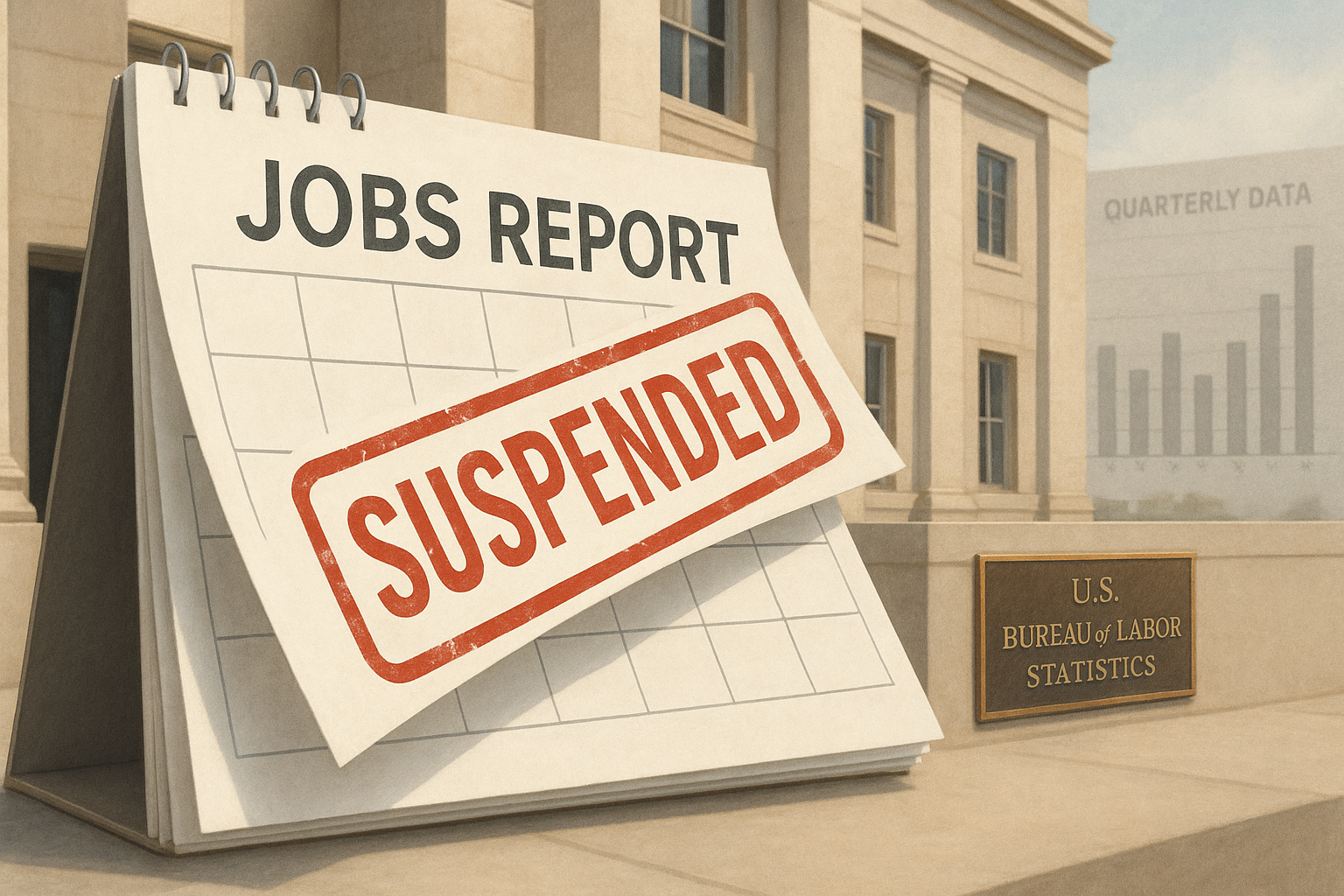E.J. Antoni, President-elect Trump's nominee to head the Bureau of Labor Statistics, just dropped what amounts to a statistical bombshell: he wants to suspend the agency's monthly jobs reports. You know, only the most closely-watched economic indicator in the world, the number that moves markets, drives Fed policy, and provides endless fodder for political posturing.
Look, I've spent enough mornings watching markets gyrate wildly after jobs numbers to appreciate the audacity here. Antoni told Fox Business that the monthly reports are "unreliable and frequently overstated" and should be suspended in favor of the "more accurate, though less timely, quarterly data."
Which, frankly, is like suggesting we replace the speedometer in your car with a quarterly letter informing you how fast you've been driving. Useful, perhaps, but not exactly when you need it.
I mean, Antoni isn't entirely wrong. The BLS establishment survey has been showing job growth that's frequently revised downward months later. The household survey often tells a completely different story. Seasonal adjustments have been particularly wonky post-pandemic. It's messy.
But here's the thing about economic data: it's always been messy. It's always required interpretation, context, and multiple confirming signals. This is not new.
What Antoni is really confronting is the post-truth economy, where the numbers themselves have become political footballs. Republicans have spent years claiming the jobs numbers are cooked; Democrats have responded by treating each positive print as gospel. The actual statisticians at the BLS, meanwhile, have been doing their best with imperfect methodologies in an economy undergoing massive structural change.
A model I often use for thinking about economic indicators is signal-to-noise ratio. Every data point contains some genuine information (signal) mixed with errors, anomalies, and randomness (noise). When the noise overwhelms the signal, the data becomes less useful. Antoni's argument, essentially, is that the monthly noise has grown too loud.
But suspending the reports? That creates a different problem altogether. Markets hate information vacuums even more than they hate noisy data. Nature abhors a vacuum, and Wall Street positively loses its mind over one.
Consider what happens when the government shuts down and certain economic reports go unpublished. Analysts don't just shrug and say "guess we'll wait." They develop alternative indicators, they rely more heavily on private data, and uncertainty premiums get priced into assets. The void gets filled, just not necessarily with better information.
The quarterly data Antoni prefers may indeed be more accurate, but they're also backward-looking in an economy that can change dramatically in weeks, not months. Just ask anyone who lived through March 2020 if they'd have preferred to wait until July for official employment figures.
There's also a certain irony in a Republican appointee suggesting we need less frequent government data. The party that has traditionally championed the private sector's information-processing capabilities is now suggesting that businesses and investors can't be trusted to properly interpret monthly figures?
"How on earth are businesses supposed to plan – or how is the Fed supposed to conduct monetary policy – when they don't know how many jobs are being added or lost in our economy?" Antoni asked.
Well, the same way they always have – by looking at multiple indicators, understanding methodological limitations, and applying judgment. The Fed doesn't set policy based solely on one jobs report. Business planning cycles don't hinge on a single month's hiring data.
The more constructive approach would be to improve methodologies, enhance transparency around revisions, and better educate the public on how to interpret economic data. The BLS could publish confidence intervals alongside point estimates. They could more prominently feature alternative measures of labor market health.
But pulling the plug on monthly reports? That feels like treating a headache by decapitation.
Then again, perhaps I'm not considering the full strategic picture. The first rule of politics is "control the narrative." And what better way to control the economic narrative than by limiting the flow of potentially unflattering data? If you don't like what the monthly jobs reports might say during your administration, why not just... stop publishing them?
I suppose we'll see how this plays out in the confirmation process. But something tells me the financial markets – which have developed quite an addiction to their monthly employment data fix – might have something to say about it.
Anyway, the jobs report comes out tomorrow. Enjoy it while you can, I guess?
